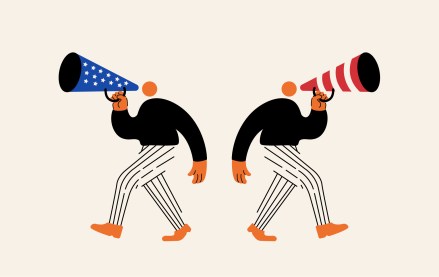
Incisive Media, home to titles including The Inquirer and Risk, could become the second British publisher to ban ad blocker users on some of its websites in the new year.
The publisher, which has a mix of subscription-based and ad-funded magazines, is seeing 40 percent of its traffic affected by visitors with ad blockers enabled, across the titles with more technology-savvy audiences, with other titles such as subscription-based financial brand Risk, seeing 10-15 percent of traffic affected.
Incisive Media’s managing director and former AOP chairman, John Barnes, said publishers must step up and take responsibility for their own part in the ad-blocking debacle, rather than “feel sorry for themselves” and continue to shift blame around.
“Publishers have partly caused the problems by letting their sites become too open and letting too many ads in, which clearly led to us not respecting the user or the content,” he said.
Now it’s tackling the issue at its source, overhauling its digital properties to ensure user experience is at its best, which in turn creates better experiences for advertisers. “Imagine if you walked into Harrods and were hit by a wave of people trying to stuff leaflets in your pockets — it would ruin the experience. It’s exactly the same thing,” he added.
On the other hand, it’s no charity. If visitors want to continue consuming content for free they must be prepared to accept that Incisive must fund them via advertising, according to Barnes. Therefore, in the new year, it will trial a mix of approaches across its titles.
Currently, the publishers to have openly banned website visitors with ad blockers enabled include Axel Springer-owned Bild, City AM and the Washington Post. Just yesterday, Forbes joined their ranks. Barnes praised all approaches, adding that their more aggressive stances had led to visitors switching off their ad blockers. He said it will take an approach “akin” to these titles next year.
Axel Springer has already claimed victory after banning ad blocker users on its newspaper brand Bild, with the Financial Times reporting that it saw the amount of readers using ad blockers drop from 23 percent to “a single digit.”
London newspaper City AM has also seen positive results, with the amount of traffic affected dropping from 22 percent to 15 percent after implementing its ban. It has now extended the ban to all its desktop users, rather than just the Firefox browser users from the initial trial.
It’s yet to be determined which exact titles will take the tougher approach.
But Incisive won’t just focus on the brands which are being hit hardest. It’s getting its house in order on all its sites, including those least affected, such as its most premium-subscription title Risk, whose biggest package is £2,000 ($3,000) a year.
In the last month, it has stripped back the amount of ads that run on the site from five to a maximum of two per page. It’s working with viewability tech provider OnScroll to ensure the ads remain locked in position as the user scrolls down the page, and automatically refresh after up to a minute.
“Far too many people try and test these things on small brands. We want to tackle it head on with one of our biggest brands. It’s about showing we recognize there is a problem and making sure the site is a better, less intrusive user experience,” said Barnes.
He said it’s too early to talk about how advertisers have responded to the changes but added that the redesign is leading to “fewer conversations about impressions” and more about audience and viewer engagement, which he characterized as positive.
More in Media

Podcast ad revenue growth slows, but networks and ad platforms pitch new content and ad buying tools at IAB Podcast Upfront
Podcast networks and ad platforms took to the stage Thursday at the IAB’s annual Podcast Upfront held in New York to talk up new show launches, improvements in measurement and ad targeting.

Media Briefing: News publishers prep for possible ad slumps as election season nears
Some publishers are expecting the worst while others aren’t sweating the “what ifs” as Oct. 1 approaches.

Warner Bros. Discovery Sports and CNN International create marketplace for sports and political ad dollars
Warner Bros. Discovery has turned to programmatic guaranteed in its latest attempt to capture more ad dollars.





